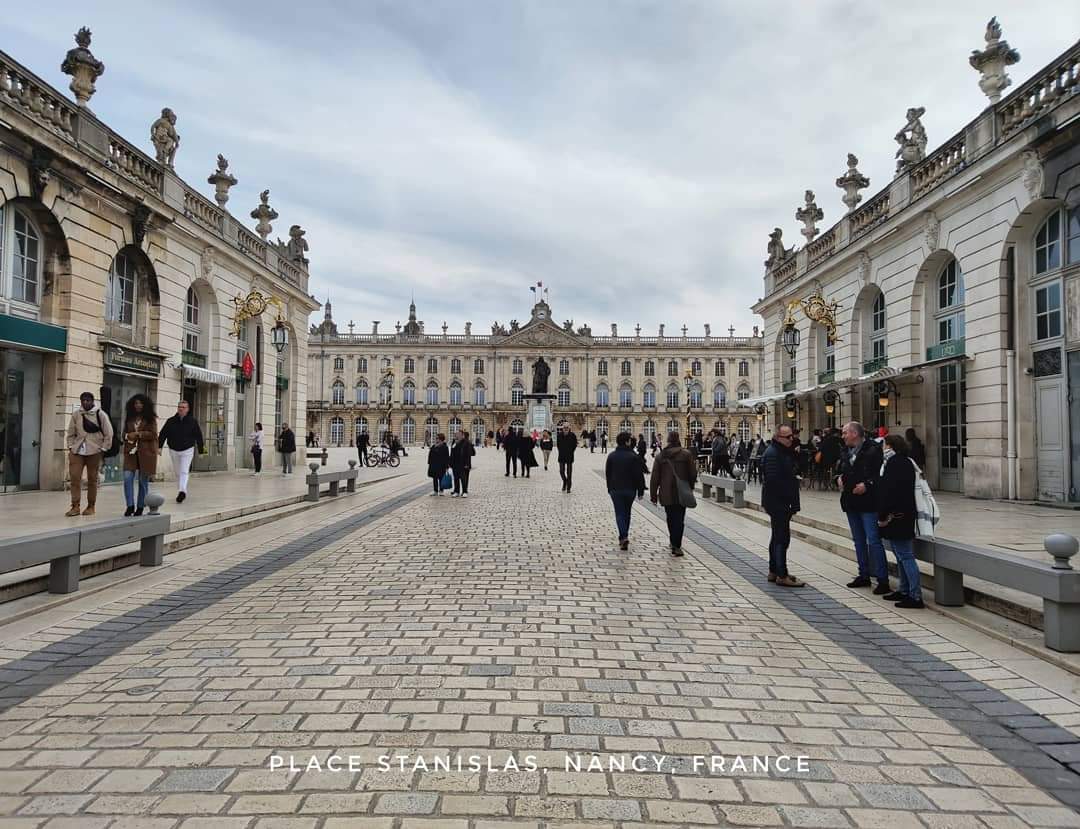
If you are considering moving to France for whatever reason, it is smart to be informed about the potential problems you might encounter as a foreigner before moving into the country to prepare yourself.
France is a beautiful country, blessed with endless beautiful sights and marvelous landscapes, rich culture, delicious cuisines and viennoiseries, and diverse people. So to me, it was worth all the pain and effort to come here.
In this blog post, you will find the top problems faced by foreigners who are currently living in France, according to an unscientific Facebook group poll. Do note that the list is more indicative than conclusive, so please be guided accordingly.
#1 French Language Barrier (33%)
Without any doubt, the French language is the biggest problem most foreigners who are living in France face as it creates a thick barrier when communicating and interacting with the locals. This problem then has a huge (read: HUGE) influence on your “French life experience” or the quality of life you will have in France.
As the country’s sole official language, it is spoken everywhere, and for most French people, especially the older generation, the only spoken language.
Even so, if you think many young French people can speak in English because they have greater exposure to the Internet or social media, you will be very disappointed as I did.
After living for two years in France, I now understand why: French people live and get on with their normal lives in France without the need to speak in English (or any other language), as in the case of other countries.
Prior to moving to France, I attended a 3-month French course at Alliance Francaise in Singapore. Even then, when I first arrived in Lille, I was shocked to find out that this foundational training was barely enough.
Additionally, French people speak very differently on the street than the sentences and phrases that what you would learn in school or language institutes. There is also the element of regionalism, which adds to the complexity and difficulty of learning the French language.
In short, this language barrier can make simple tasks you are used to doing in your own country more complicated and more time-consuming.
My advice if you are certain about your move to France: start to learn the French language and continue to learn it when you are in France, surround yourself with French-speaking people (and not just expats), and make it a goal to be fluent even if this may take years.
I can guarantee that you will enjoy France much, much more the moment you are able to hold a conversation in French with French people.
#2 Work Opportunities (12%)
Do you speak only English and you are hoping to find a job in France? Good luck, you are in for a wild and difficult ride.
While it is definitely possible to find English-speaking jobs in France if you look very hard and have a lot of time to spend on job applications, the reality is that having no French language skills or being not fluent in French means that you are losing out on many employment opportunities.
Chances of finding English-only speaking jobs may be higher in big cities like Paris. But based on my own experience, even in larger metropolitans such as here in Lille, the overwhelming majority of jobs in the market requires fluency and mastery of the French language.
There is also another problem where your foreign academic credentials or years of prior (and relevant) work experience in other countries are not recognized in France, so there is another layer of getting employed.
#3 Visas and Work/Residence Permits (11%)
All foreigners who come to visit, live, and work in France are required to have visas to legally enter the country (except for European citizens and citizens of certain countries) , or to have residence permits in order to legally stay longer in the country.
As you might already know, getting the right visa to enter France involves a lot of cost and paperwork, especially for non-EU citizens like myself.
If you are applying for a long-term visa that allows you to stay in France for more than 6 months, then you will be required to validate your visa into a resident permit.
You might think that the bureaucratic adventure ends the moment you enter France. Wrong. By deciding to move to France, you would need to accept that administrative procedures relating to visas and residence permits will become a sticky part of your life.
Indeed, coming to France is only half of the challenge. In many cases, in fact, the administrative processes related to the residency and work permit applications submitted inside France are slow and take much longer time to be processed.
Based on my experience, any administrative affair on residence permit-/status-related is always like a waiting game. Unsurprisingly, this is true for every foreigner who lives in France. Just ask someone who lives here and I can assure you that person would have plenty of stories to tell regarding the bureaucratic nightmare.
#4 Finding the Right Accommodation (10%)
Finding suitable accommodation can be hard to find, especially in certain towns and larger cities like Paris.
Rental markets in France are often tight and competitive, but that does not necessarily mean you cannot find affordable options if you look hard or early enough outside of the expected peak/vacation periods.
Before signing a French rental contract, make sure you acquaint yourself with certain rules, as they may not be the same as the rules you are accustomed to. Make sure you understand your rights as a tenant and the extent of responsibility of your landlord.
Based on my experience renting a room in Lille, I remember I was required to purchase housing insurance covering an entire year and civil liability insurance.
#5 Culture and Customs Differences (9%)
Have you watched Emily in Paris on Netflix? If you have, you will know that the social norms and etiquette standards in France may be very different from your own country.
Of course, the show was exaggerated but there are definitely certain French cultural elements that will endear, amuse, or annoy you. But since you are the one who is moving to France, it is your responsibility to adapt to the culture and not impose yours.
Just a few things I could mention based on my experience: vacations and holidays are sacred in France so don’t go chasing anyone work-related unless it’s an emergency, display of religious symbols are a taboo in public spaces, avoid shouting in public as this is viewed as a lack of manners, don’t assume that French people should speak English, among others.
#6 The French Taxes (8%)
The French tax system is known to be one of the most complex in the world, so navigating it can be daunting. France is also known to be the most taxed country in Europe, according to a report.
In essence, all French citizens and foreigners who live in France, and those considered tax residents (i.e. people who spent their time in France for at least 180 days in a year), are required to submit their yearly tax declarations. Everyone is also required by law to declare their foreign bank accounts.
If you have properties and other assets in France, then most likely they are covered by other tax regimes.
People earning income in France pay high social contributions and taxes. And reasonably so as the country is known in the developed world to spend the most on social spending relative to the size of its economy.
This social spending covers the cost of French healthcare, pension, and social services.
Indeed, I personally find that the French state provides a lot of support to its residents, compared to countries I’ve lived in Asia. For example, since I moved to France, I have learned that students can get support on their rent from the state which is cool (as far as I know, that does not exist in Singapore or the Philippines). I have also met some French people who are living for many years completely based on the state aid they received, to name a few. It is fascinating and equally shocking to me, especially when I start asking how all of this support is sustainable.
#7 Cost of Living (6%)
Without any doubt, France is an expensive country to visit and live in. This is especially more pronounced when you live in bigger cities like Paris, Nice, or Lyon.
As a regular viewer of the French BFM and Le 20H TV news programs, I could tell you that nearly every day/week there is news about some rise in the prices of energy bills, groceries, electricity, insurance, and other bills. Too frequent that hearing my French partner’s complaints about the rising costs has become a regular thing.
Here’s a great article that gives you some ideas on the cost of living in France.
#8 Healthcare System and Standards of Care (6%)
The French healthcare system is likely to be different from what you are used to. In France, every resident needs to be part of the state’s healthcare system. Everyone is covered with state health insurance which helps to partly reimburse 70-80% of the costs from hospitals, specialists, and doctors.
If you want to be fully reimbursed, then it is also recommended that you buy a mutuelle (unless your French employer covers it for you). A mutuelle is a French complementary insurance that complements the reimbursements done by the French public healthcare (called Assurance Maladie or CPAM ).
If you have a mutuelle, then it fully covers the cost that you may incur in the future from unexpected hospitalizations or other expenses related to your health. Here is an excellent website to read about French health insurance.
Based on my experience, I find the healthcare system in France amazing. It felt so nice to realize that I only had to pay a little amount of money whenever I see my doctor.
For ex-pats and foreigners, the biggest problem I could think of is the general lack of English-speaking doctors or the general lack of doctors in many (more rural) areas of France. If you have not learned any French yet, I am certain you will face this problem.
#9 Cost and Quality of Education (3%)
The French education system is likely to be different from the system you are used to in your country.
Understanding the French schooling system may be a challenging undertaking, especially if you have yet to pick up French and break the language barrier. So I can imagine how difficult it must be for those who bring their kids to France.
On this subject, I could only share about my experience as an international student in France who has signed up for a Master’s degree program and completed it. I entered a private, business school that delivered the curriculum in the English language.
While I was a student, I figured that France has so many school holidays (compared to what I was used to in Asia) and with the remaining school time, it felt like the lesson plan was jam-packed with many different subjects.
Our projects were always extremely time-pressured and I found that the guidance from professors was minimal. This may be good or bad, depending on what you are used to. That said, if you are moving to France as an international student, it is best that you act responsibly (note: don’t be complacent) and ensure that you are on top of your academic game — especially since higher degree education in a French private business school is certainly not cheap!
Even more, once you have completed your studies in France, expect minimal support from your school when looking for a job. It is best you act independently to look for a job that interests you and exert all your best efforts. This way, you can avoid heartaches and disappointments.
#10 Transportation Options and Cost (2%)
The French public transport system is extensive, although it has its share of quirks and issues. In many cities, the most common modes of transport are metros, buses, trams, bicycles, and scooters.
If you are moving to a more rural town or village in France, then it is highly likely that you will need to drive to get to places.
Based on my experience, I am pretty happy with the French public transportation system. Luckily, I live in the Ville of Roubaix in Lille’s Metropolitan. We have buses, metros, trams, and trains.
Worth highlighting in this section is when you need to move your things from one house to another. This task is often very challenging, let alone expensive, so be prepared.
As you can see above, many foreigners who live in France face so many problems — so you now know what you can expect when you move to France, and therefore, you can make a strategy to lessen the impact of the problems that are relevant to you.
However, to me at least, all these problems are worth all the effort.
I love France and the freedom of life I am having here.






